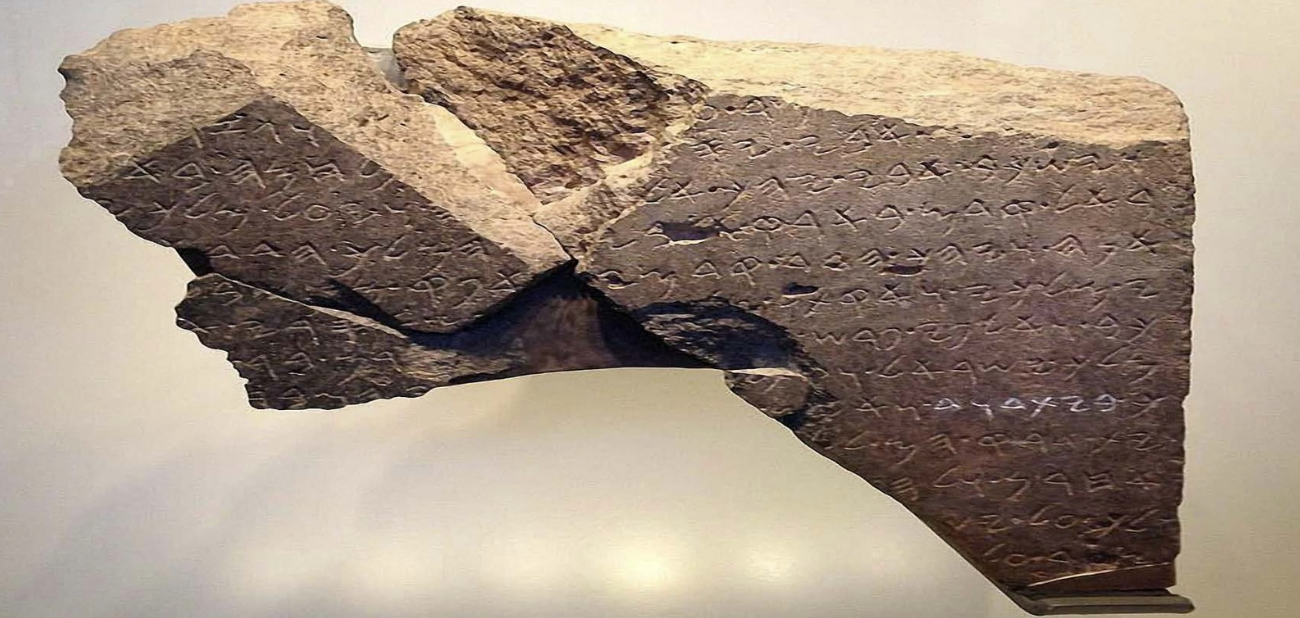Inspire 21-Day Devotional: Illuminating God's Wordਨਮੂਨਾ

WEEK 2, DAY 4: CAN WE TRUST THE BIBLE?
The Bible is Historical
In the turbulent days following Solomon’s death, Israel was divided. Jeroboam, having been made king over the northern tribes, faced a dilemma. Jerusalem was in the southern kingdom of Judah, the center of worship and the throne of David. He feared that the loyalty of the people would shift back to the house of David if they continued to go to Jerusalem to worship. Jeroboam, driven by a desire to maintain power, made a fateful decision to set up golden calves in Bethel and Dan, leading Israel into idolatry.
Ironically, Dan would ultimately validate the historical existence and importance of the “House of David” through the inscription discovered there. While Jeroboam feared that the people’s hearts would turn back to David’s descendants, God’s plan was already unfolding in a way that would confirm the enduring importance of David’s house.
One of the most remarkable finds in this regard is the Tel Dan Stele, an ancient inscription discovered in northern Israel in 1993. This stele, which dates back to the 9th century BC, contains a reference to the "House of David." The inscription is made by an Aramean king who recounts his victories over Israel. Significantly, included in his boasting is a reference to the “House of David.” For years, skeptics questioned whether David was a real historical figure or more myth than history, comparing him to the legend of King Arthur. But the Tel Dan Stele silenced these doubts, confirming that David was indeed a historical king, and that the surrounding nations recognized his dynasty.
The Tel Dan Stele doesn’t just validate the existence of David—it underscores the eternal truth that God’s promises cannot be thwarted by human fear or ambition. Jeroboam’s efforts to undermine the Davidic dynasty did not succeed. Instead, God’s covenant with David, that his throne would endure forever (2 Samuel 7:16), stands firm, even in the face of rebellion.
Today, this discovery serves as a reminder that God’s plans cannot be derailed by human scheming. Even when we try to take matters into our own hands, God's purposes will prevail. His truth is not only found in Scripture; it is confirmed in history.

Artifact: The Tel Dan Stele
The Tel Dan Stele was discovered by Gila Cook in 1993. Found among the ruins of a stone wall, this inscription is one of the most significant historical finds of the modern era. Steles were public monuments inscribed with military conquests, regal accomplishments, or public service announcements in the ancient world. This basalt tablet with Old Aramaic characters recounts the exploits of an unnamed king (maybe Hazael of Damascus) over the House of David. The original is on display at the Israel Museum. See a facsimile of this tablet on the history floor at the Museum of the Bible.
Q1. What are the main themes or ideas of the Scripture passage?
Q2. What does this devotional tell me about who God is?
Q3. How does this devotional challenge or encourage me?
Q4. What specific action can I take to live out this teaching?
Q5. Who should I share this with for encouragement or accountability?
ਪਵਿੱਤਰ ਸ਼ਾਸਤਰ
About this Plan

Welcome to this 21-day devotional journey designed to help you deepen your understanding of the Bible and grow in your faith. Over the next three weeks, we will explore the foundational questions that shape our approach to Scripture. By engaging with these questions, we hope you will not only gain a richer knowledge of the Bible but also develop a stronger sense of trust and connection to God’s Word. Each week, we will focus on one key question: What is the Bible? Can We Trust the Bible? Where Did the Bible Come From?
More
Related Plans

Everyone Should Know - Thanksgiving Special

When Heaven Touched Earth - a 7 Day Journey to Christmas

Lessons From Some Hidden Heroes in the Bible

The Mandate to Multiply.

Scriptures and Hymns to Grow Your Joy This Christmas

Hope in Creator’s Promises

OVERCOME Lust WITH TRUST

Your Prayer Has Been Heard: How God Meets Us in Seasons of Weariness and Waiting

Adversity
